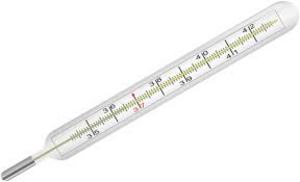Government is being urged to re-invigorate its efforts to tackle sickness absence and implement the recommendations of the Frost/Black Review as a matter of urgency, amidst new evidence that the long term downward trend in absence rates has plateaued...
Government is being urged to re-invigorate its efforts to tackle sickness absence and implement the recommendations of the Frost/Black Review as a matter of urgency, amidst new evidence that the long term downward trend in absence rates has plateaued.
The call was made by EEF, the manufacturers' organisation on the back of publication of the EEF/Westfield Health 2012 annual sickness absence report. The report, which includes the UK's largest private sector business survey of sickness absence, illustrates some continued positive results, especially for those companies taking a proactive approach to managing sickness absence as part of best practice and, who are prepared to work with their GPs to get employees back to work.
This approach has resulted in a continued year on year decline in short term absence over the last five years, with one third of companies seeing a decrease in 2011. In addition, the number of employees having no sickness absence has again increased to 51% in 2011, up from 46% in 2010. This reflects the steps that employers have taken in this area, including setting stretching absence targets, training line managers and providing employees with Occupational Health services. Smaller companies continue to have a lower average rate of absence than larger firms.
However, despite these efforts the overall sickness absence rate has now flattened off and remained unchanged from 2010 (2.2%), whilst the average working days lost to absence has shown a marginal increase from 5 days per employee to 5.1 days (this still compares to 6.7 in 2007). Of greater concern is the divergence between short and long term absence where almost 40% of companies saw an increase in 2011, an increase of 5% on 2010 alone.
This was mainly down to a jump in absence due to stress, anxiety and depression which often result in longer periods off work. In addition, the issue of presenteeism is now being discussed significantly with 55% of companies expressing concerns, in particular on the impact on long term health, short term illness and unmotivated employees. However, only 5% of companies currently monitor the cost of presenteeism.
Commenting, EEF chief medical adviser, Professor Sayeed Khan, said:
"With our economy still suffering from weak growth we need to pull every possible lever to improve our economic performance. This includes helping employees to return to health and work as soon as possible. There are now signs that the wins to reduce short -term absence are being exhausted and we need a fresh approach from government to address the more deep-rooted problems such as stress and back pain.â€
"For its part, government must now implement the Frost/Black recommendations as a matter of urgency. In particular it must embed the fit note culture through the training of all doctors and support companies who invest in rehabilitation. At the same time companies should get involved and make the fit note work for them. All the evidence shows the more companies put into the fit note, the more they get out of it."
Paul Shires, Westfield Health Executive Director said:
“Encouragingly, this year's survey results show a decline in short term absence, particularly amongst those companies which are being proactive in managing sickness absence and are implementing measures such as health insurance.
“As the NHS continues to work towards its £20billion savings target by 2014, we would expect the amount of companies taking a more proactive approach to grow, and, it is essential that health insurers continue introducing more relevant benefits to bridge gaps in service provision. However, as the survey shows overall sickness absence has plateaued and stress related absenteeism has grown, it is clear that more needs to be done to aid and assist employers with their healthcare needs.â€
The survey also shows the continued impact of the 'fit note' two years after its introduction. Whilst 30% of employers say it has made a difference (compared to 11% who find it less helpful), almost 60% of companies say it has made no difference to date. In response, EEF believes that more effort needs to be made to embed this culture if it is to succeed, including the introduction of the electronic fit note as soon as possible in 2012.
Furthermore, there should also be increased emphasis on the training of GPs where only 3500 have been trained out of a UK total of over 40,000. However, the positive impact of the training of GPs to date is highlighted by the fact fewer employers see GPs as a barrier to rehabilitation, down to 23% from 34% in 2008.
Employers who take a proactive approach to managing sickness absence are also more likely to see the benefits than those who do not. For example those who do not have any barriers to rehabilitation on average have 1.6 days less sickness absence per employee than those who identify barriers. In addition those who proactively contacted their GP about workplace adjustments they could offer their employees were more likely to receive fit notes with 'may be fit for work'.
To back proactive companies investing in Occupational Health facilities and rehabilitation, EEF believes government could have a major impact in this area by introducing the tax reliefs recommended in the Frost/Black Review. These would include treatments such as physiotherapy, private medical treatment, health & well- being promotion and healthcare insurance.
Other key findings
• 13% of companies set 'stretch' sickness absence targets of below 2% with 70% achieving this target
• 72% of companies have more than 40% of employees with zero absence, up from 58% in 2010
• Manual workers have a higher absence rate than non-manual (6.7 days per employee compared to 3.2)


